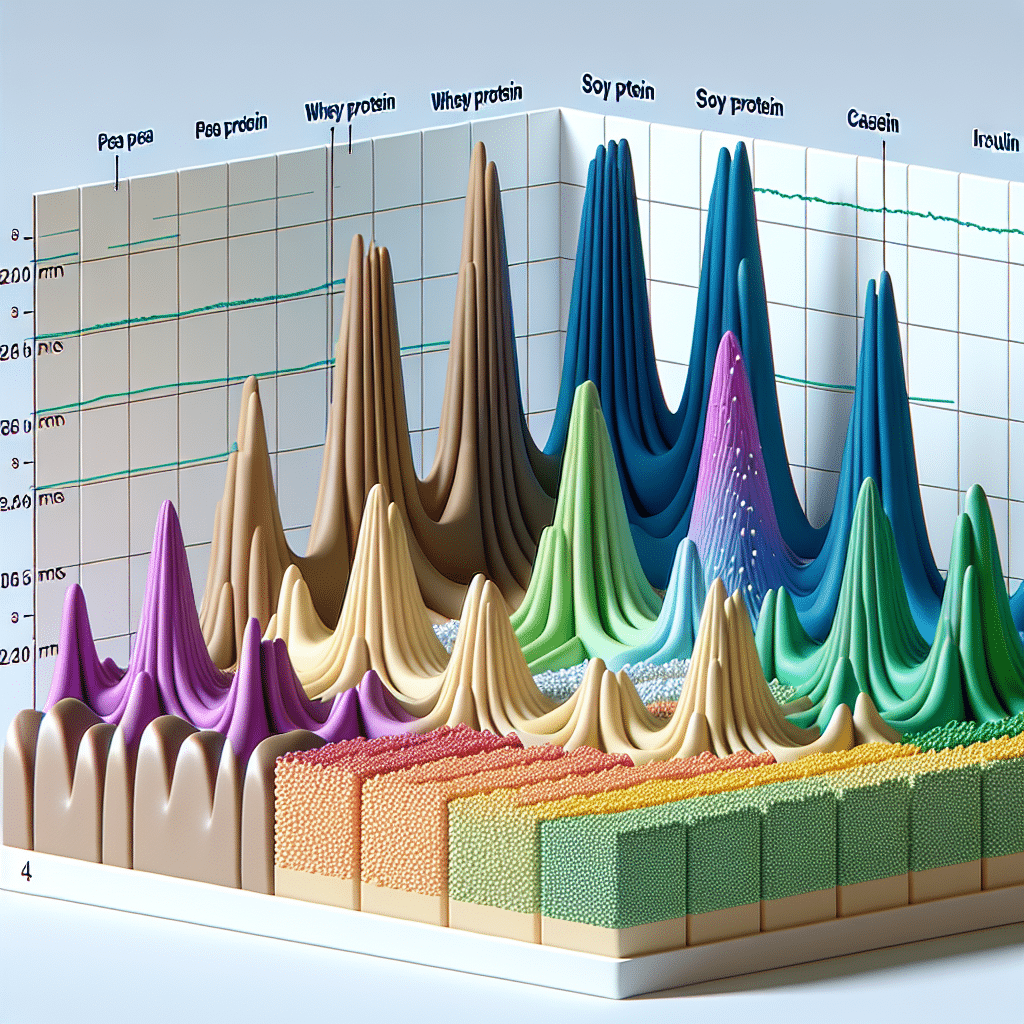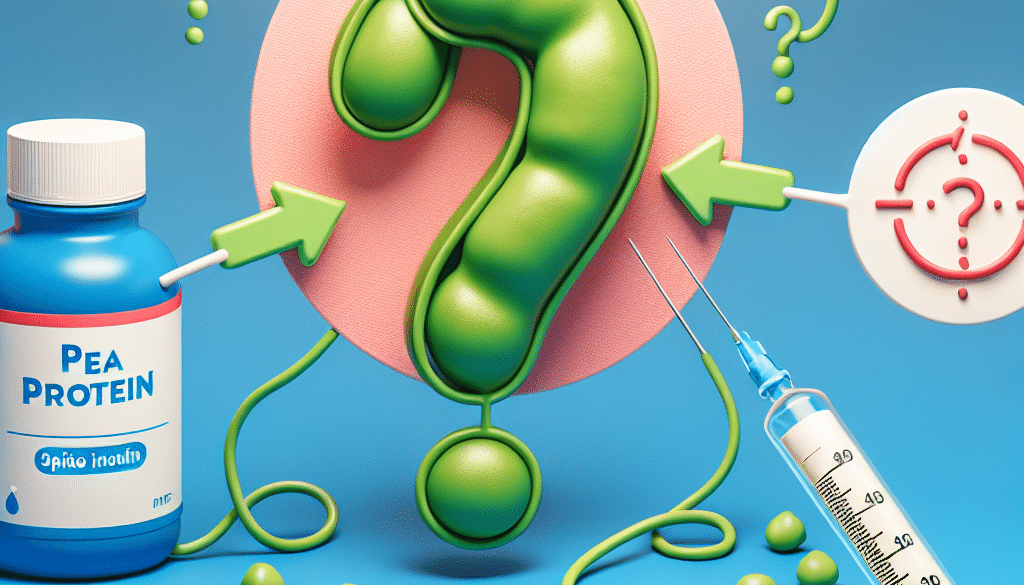Does Pea Protein Spike Insulin? Reveal Truths
Table of Contents
- Pea Protein and Insulin Response: Analyzing the Impact
- Understanding Insulin and Protein’s Role
- Pea Protein: Composition and Digestibility
- Does Pea Protein Spike Insulin?
- Research on Pea Protein and Insulin Response
- Case Studies and Anecdotal Evidence
- Comparing Pea Protein to Other Protein Sources
- Pea Protein for Diabetics and Insulin Resistance
- Conclusion: Pea Protein as a Stable Protein Source
- ETprotein: Your Source for High-Quality Pea Protein
Pea Protein and Insulin Response: Analyzing the Impact

Pea protein has become a popular alternative to animal-based proteins, especially among vegetarians, vegans, and individuals with dietary restrictions. As the prevalence of lifestyle diseases such as diabetes continues to rise, understanding how different foods affect insulin levels is crucial. This article delves into the question: Does pea protein spike insulin?
Understanding Insulin and Protein’s Role
Before we examine the effects of pea protein on insulin, it’s important to understand what insulin is and how it functions. Insulin is a hormone produced by the pancreas that allows cells to absorb glucose from the bloodstream for energy or storage. Proteins, while primarily known for their role in muscle repair and growth, can also influence insulin levels to a lesser extent than carbohydrates.
Pea Protein: Composition and Digestibility
Pea protein is derived from yellow split peas and is a high-quality source of protein that contains all nine essential amino acids. It is particularly rich in branched-chain amino acids (BCAAs), which are crucial for muscle building and repair. The digestibility of pea protein is also high, making it an efficient source of nutrients for the body.
Does Pea Protein Spike Insulin?
The impact of pea protein on insulin levels is a topic of interest for many health-conscious individuals. To understand this, we need to look at the glycemic index (GI) and insulin index (II) of pea protein. The GI measures how quickly a food raises blood sugar levels, while the II measures the corresponding rise in insulin levels.
Pea protein has a low GI, meaning it does not cause a rapid spike in blood sugar levels. This is because it contains minimal carbohydrates. The II of pea protein is also relatively low, which suggests that it does not cause a significant spike in insulin levels. However, individual responses can vary based on factors such as the overall composition of the meal, individual metabolic health, and the presence of other macronutrients.
Research on Pea Protein and Insulin Response
Several studies have investigated the effects of pea protein on blood sugar and insulin levels. For instance:
- A study published in the American Journal of Clinical Nutrition found that pea protein elicited a lower insulin response compared to whey protein in healthy individuals.
- Another study in the Journal of Nutrition showed that incorporating pea protein into a meal could help manage blood sugar levels in type 2 diabetics.
These studies suggest that pea protein may be beneficial for those looking to manage their insulin levels and maintain a healthy blood sugar balance.
Case Studies and Anecdotal Evidence
While scientific research provides valuable insights, anecdotal evidence from individuals who have incorporated pea protein into their diets also supports the notion that pea protein does not significantly spike insulin. Many report stable energy levels and satiety without the blood sugar crashes associated with high-GI foods.
Comparing Pea Protein to Other Protein Sources
When compared to other protein sources, pea protein stands out for its low potential to spike insulin. Animal-based proteins like whey may have a higher II, while other plant-based proteins such as soy also exhibit a low insulin response, similar to pea protein.
Pea Protein for Diabetics and Insulin Resistance
For individuals with diabetes or insulin resistance, pea protein can be an excellent dietary addition. Its low GI and II make it a safe choice that is unlikely to cause significant fluctuations in blood sugar or insulin levels. This can be particularly beneficial for managing diabetes and preventing complications associated with the disease.
Conclusion: Pea Protein as a Stable Protein Source
In conclusion, pea protein does not appear to spike insulin significantly, making it a suitable protein source for those looking to manage their insulin and blood sugar levels. Its high digestibility, complete amino acid profile, and low impact on insulin make it an excellent choice for a wide range of dietary needs.
ETprotein: Your Source for High-Quality Pea Protein
If you’re looking for a reliable source of high-quality pea protein, ETprotein is a company worth considering. Their pea protein products are organic, non-GMO, and allergen-free, ensuring that you receive a pure and effective supplement to support your health and dietary goals.
ETprotein’s offerings are not limited to pea protein; they also provide a variety of other plant-based proteins and L-(+)-Ergothioneine (EGT) to cater to different needs. Whether you’re in the food and beverage industry, sports nutrition, or looking for dietary supplements, ETprotein has a solution for you.
Trusted by leading global brands and Fortune 500 companies, ETprotein stands out for its commitment to quality and customer satisfaction. To learn more about their products or to request a sample, reach out to them at sales(at)ETprotein.com.
About ETprotein: ETprotein, a reputable protein and L-(+)-Ergothioneine (EGT) Chinese factory manufacturer and supplier, is renowned for producing, stocking, exporting, and delivering the highest quality organic bulk vegan proteins and L-(+)-Ergothioneine. They include Organic rice protein, clear rice protein, pea protein, clear pea protein, watermelon seed protein, pumpkin seed protein, sunflower seed protein, mung bean protein, peanut protein, and L-(+)-Ergothioneine EGT Pharmaceutical grade, L-(+)-Ergothioneine EGT food grade, L-(+)-Ergothioneine EGT cosmetic grade, L-(+)-Ergothioneine EGT reference grade and L-(+)-Ergothioneine EGT standard. Their offerings, characterized by a neutral taste, non-GMO, allergen-free attributes, with L-(+)-Ergothioneine purity over 98%, 99%, cater to a diverse range of industries. They serve nutraceutical, pharmaceutical, cosmeceutical, veterinary, as well as food and beverage finished product distributors, traders, and manufacturers across Europe, USA, Canada, Australia, Thailand, Japan, Korea, Brazil, and Chile, among others. ETprotein specialization includes exporting and delivering tailor-made protein powder and finished nutritional supplements. Their extensive product range covers sectors like Food and Beverage, Sports Nutrition, Weight Management, Dietary Supplements, Health and Wellness Products, and Infant Formula, ensuring comprehensive solutions to meet all your protein needs. As a trusted company by leading global food and beverage brands and Fortune 500 companies, ETprotein reinforces China’s reputation in the global arena. For more information or to sample their products, please contact them and email sales(at)ETprotein.com today.














